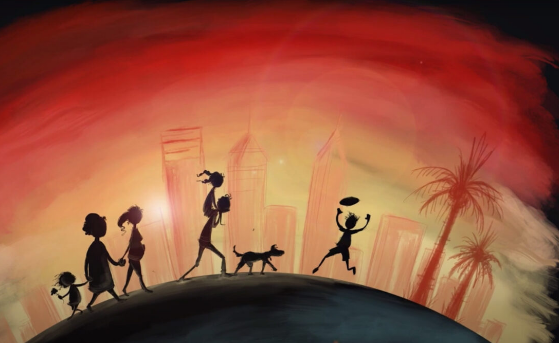Aboriginal Health And Intergenerational Trauma+ Video

Introduction
Uncovering the hidden layers of Aboriginal health is an essential step towards healing and progress. One crucial aspect that often gets overlooked is the intergenerational trauma experienced by Indigenous communities. Deep-rooted and insidious, this form of trauma passes down from one generation to the next, leaving a profound impact on individuals, families, and entire communities. In this blog post, we will delve into what intergenerational trauma entails and explore its intricate relationship with Aboriginal Health And Intergenerational Trauma+ Video. Together, let’s shed light on this pressing issue and discover possible solutions for a brighter future. So grab a seat, open your mind, and prepare to embark on a journey that challenges our understanding of history’s lasting effects!
What is intergenerational trauma?
Intergenerational trauma refers to the transmission of traumatic experiences and their associated effects from one generation to another. It is a concept that recognizes the lasting impact of historical events, such as colonization and forced assimilation, on Indigenous communities.
For many Aboriginal people, intergenerational trauma manifests in various ways – psychological distress, substance abuse, high rates of chronic diseases, and mental health issues. These are not simply individual struggles but reflect the deep-rooted scars left by past injustices.
The trauma experienced by previous generations can shape family dynamics and cultural practices within Aboriginal communities. Disrupted attachment patterns and unresolved grief can pass down through generations, perpetuating cycles of pain and suffering.
Addressing intergenerational trauma requires holistic approaches that acknowledge its complex nature. Culturally sensitive interventions that prioritize community healing are crucial for promoting resilience among Indigenous individuals and families.
By acknowledging the impacts of intergenerational trauma on Aboriginal health outcomes, we can work towards creating environments where healing becomes possible. This involves fostering cultural pride, providing access to mental healthcare services tailored specifically for Indigenous communities, supporting traditional healing practices, and promoting self-determination.
Understanding the depth of intergenerational trauma empowers us to actively contribute to reconciliation efforts while advocating for systemic change that addresses historical injustices faced by Indigenous peoples. Together we can create a future where Aboriginal health is no longer disproportionately affected by past traumas.
How does intergenerational trauma impact aboriginal health?
Intergenerational trauma is a deeply rooted issue that has significant impacts on the health of Aboriginal communities. Passed down through generations, this form of trauma can manifest in various ways and have long-lasting effects on individuals and their overall well-being.
One way intergenerational trauma affects Aboriginal health is through mental health disparities. The experiences of past generations, such as forced removal from families or the effects of colonization, can lead to higher rates of depression, anxiety, and post-traumatic stress disorder among Indigenous peoples. These mental health challenges can contribute to substance abuse issues and self-destructive behaviors as coping mechanisms.
Moreover, intergenerational trauma also influences physical health outcomes for Aboriginal populations. Studies have shown links between historical traumas and chronic diseases like diabetes, cardiovascular conditions, and obesity within these communities. This connection highlights the intricate relationship between emotional distress and physical well-being.
It is crucial to recognize that addressing intergenerational trauma requires holistic approaches that prioritize cultural healing practices specific to each community’s needs. By promoting cultural continuity, providing access to culturally appropriate healthcare services, fostering supportive environments, and empowering individuals within their own communities, we can begin to address the complex impacts of intergenerational trauma on Aboriginal health.
As we continue our journey towards reconciliation and healing with Indigenous communities across Canada (and beyond), it is essential that we work collaboratively with elders, knowledge keepers,and community leaders who hold invaluable wisdom about traditional healing methods. Together with evidence-based interventions tailored to individual circumstances,tangible progress in improving aboriginal healthcare outcomes will be possible
What are some possible solutions to address intergenerational trauma?
Possible Solutions to Address Intergenerational Trauma
1. Healing and Therapeutic Approaches: One possible solution to address intergenerational trauma is through healing and therapeutic approaches. This involves providing culturally sensitive mental health services that are tailored specifically for Aboriginal communities. These can include counseling, group therapy, art therapy, and traditional healing practices such as ceremony or connection with the land.
2. Education and Awareness: Another important solution is increasing education and awareness about intergenerational trauma within both Aboriginal communities and society at large. By understanding the historical context of colonization and its ongoing impacts, we can foster empathy, challenge stereotypes, combat discrimination, and promote healing.
3. Strengthening Community Connections: Building strong community connections is crucial in addressing intergenerational trauma. This can involve creating safe spaces where individuals feel supported by their peers, elders, and other community members who have also experienced trauma. Programs that encourage cultural revitalization activities like language classes or traditional teachings can help strengthen these connections.
4. Policy Changes: To address intergenerational trauma effectively, policy changes are necessary at various levels of government. This includes implementing strategies that promote self-determination for Aboriginal communities in areas such as healthcare, education, housing, employment opportunities, social services support systems.
5. Supporting Indigenous-led Initiatives: It’s important to support Indigenous-led initiatives aimed at addressing intergenerational trauma within their own communities.
Their knowledge , experience,and cultural insights play a vital role in developing effective solutions.
By working collaboratively with Indigenous organizations , governments will be more successful in addressing the root causes of this issue.
Remember – there is no one-size-fits-all approach when it comes to dealing with intergenerational trauma among Aboriginal peoples.
It requires a comprehensive effort involving multiple stakeholders including individuals,families,culturally-informed professionals,governments,and non-governmental organizations.
Conclusion
In wrapping up this discussion on intergenerational trauma and its impact on Aboriginal health, it is clear that this issue requires urgent attention and action. The effects of historical trauma continue to reverberate through generations, perpetuating a cycle of disadvantage and poor health outcomes.
Addressing intergenerational trauma is complex and multifaceted. It involves acknowledging the history of colonization and its ongoing impact, promoting healing through culturally sensitive approaches, empowering communities to reclaim their cultural identity, and advocating for social justice.
One important step towards addressing intergenerational trauma is recognizing the resilience and strength within Aboriginal communities. By amplifying indigenous voices, promoting self-determination, and fostering community-led solutions, we can create space for healing processes to take place.
It is crucial to engage in collaborative partnerships between governments, healthcare providers, researchers, educators, and community organizations. This collective effort will enable the development of comprehensive strategies that target the root causes of intergenerational trauma.
By investing in culturally appropriate healthcare services that are accessible to all Aboriginal individuals across their lifespan – from prenatal care to elder care – we can make significant progress towards closing the health gap between Indigenous Australians and non-Indigenous Australians.
Creating lasting change requires a commitment from society as a whole. We must challenge systemic racism while actively working towards reconciliation with Indigenous peoples. Only then can we hope to break the cycle of intergenerational trauma that has plagued Aboriginal communities for far too long.
Video
One powerful way to shed light on the issue of intergenerational trauma in Aboriginal communities is through video storytelling. Visual narratives have the ability to evoke emotions and create a connection with viewers, allowing for a deeper understanding of the challenges faced by Indigenous individuals.
In this video, we hear from members of different generations within an Aboriginal community who share their personal experiences with intergenerational trauma. Through their heartfelt stories, we glimpse into the lasting impact that historical events such as colonization and residential schools have had on their health and well-being.
By watching this video, we are able to witness firsthand the resilience and strength exhibited by these individuals as they navigate through life while carrying the weight of their ancestors’ pain. It serves as a reminder that healing is possible but requires a collective effort from both indigenous communities and society at large.
Moreover, this video also emphasizes the importance of cultural revitalization as a means to address intergenerational trauma. By reclaiming traditional practices, language, and customs, Aboriginal communities can foster a sense of pride and identity which plays an integral role in promoting overall health and well-being.
Read More: 10desires.org Health




